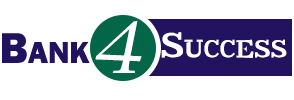How Blockchain is set to disrupt the Education Sector
Blended learning is the latest evolution in education. COVID-19 accelerated digital learning. Schools around the world began to use online platforms and Learning Management Systems for teaching students. The blockchain technology is poised to revolutionize education. Blockchain technology has the power to change how academic data are managed and how students and teachers interact. We’ll look at how blockchain technology could affect education in future.
How Blockchain Could Affect Education
1. Smart Contracts for Courses and Assignments
Blockchains and smart contracts could make the job of educators easier. Smart contracts are made up of lines of code which are programmed in a blockchain, and are executed automatically when certain conditions have been met. Smart contracts can be used for managing course content, including distribution. They can automate course material delivery, including readings, videos and quizzes. It can reduce administrative work and improve the organization of courses.
2. Keep Student Records
Along with the growth of online learning, fake certificates (degrees) are becoming more popular. Many businesses and educational institutions are concerned about this issue. A blockchain is a great way to solve the problem of certification management. The universities can store their certificates as immutable records on the blocks.
These credentials can be easily shared by students using the exact URLs within their email signatures and social media profiles. These certificate and identity management solutions are offered by many blockchain development companies. As blockchain is decentralized and transparent, all documents are stored on the blockchain. They are unchangeable and can be verified.
Related: Four Factors to Consider When Choosing a University
3. Bitcoin for Rewards
The process of transferring documents and verifying them when a student switches schools can be a time-consuming one for both the student and the school administration. The blockchain technology can streamline the verification process at schools and universities.
For our academic and extracurricular achievements, we are often awarded trophies and scholarships. But blockchain technology allows us to give kids tangible prizes, such as bitcoins, in exchange for their outstanding performances. Teachers can reward students for completing modules and other assignments in online learning environments using gamification. Gamification features in Learning Management Systems help tokenize all rewards into digital currency.
4. Digital Badges and Credentials
Blockchain is used to create secure digital certificates and badges that can be displayed and verified on digital portfolios. Smart contracts are a great way to encourage peer-to-peer collaboration and learning. Students can be rewarded for participating in online discussions or providing feedback to their peers. It can create an interactive and engaging learning environment and encourage students to develop critical thinking and communication.
5. Easy of Certification Authenticity
Blockchain technology’s distributed ledger can improve transparency and accountability within the education field. It creates an unalterable record of education data including transcripts and degrees that can be verified and is tamperproof. It is possible to validate academic achievements with 100% accuracy. Employers can also be confident about the knowledge and skills of job candidates.
The transfer of documents is a lengthy process when a student changes schools. Blockchain technology can streamline the verification process in schools and colleges. By granting the new institution access to the blockchain, student records can easily be transferred when a student moves from one institute into another. Some blockchain companies create and issue certificates which are not only unforgeable but also immutable.
6. Reduced Cost
It can also be used to share grades between institutes for students who are part of exchange programs. By providing the necessary access to the data, administrative costs can be reduced.
The conclusion of the article is:
Globally, the convergence of Virtual Reality and Augmented Reality with the physical world has increased. This has caused disruptions to various sectors. Blockchains are a more recent technology compared to centralized databases. They provide greater efficiency and storage. The financial industry is already being transformed by blockchains, cryptocurrency, and metaverse projects.
Incorporating these technologies into academic curricula will provide not only more opportunities for the youth but also a framework which is efficient, affordable, easily accessible to all students and will allow them more exposure. While making learning an enjoyable journey. A blockchain development company will help educational institutions to streamline their processes and reduce costs while improving the quality of education.
Read more:

